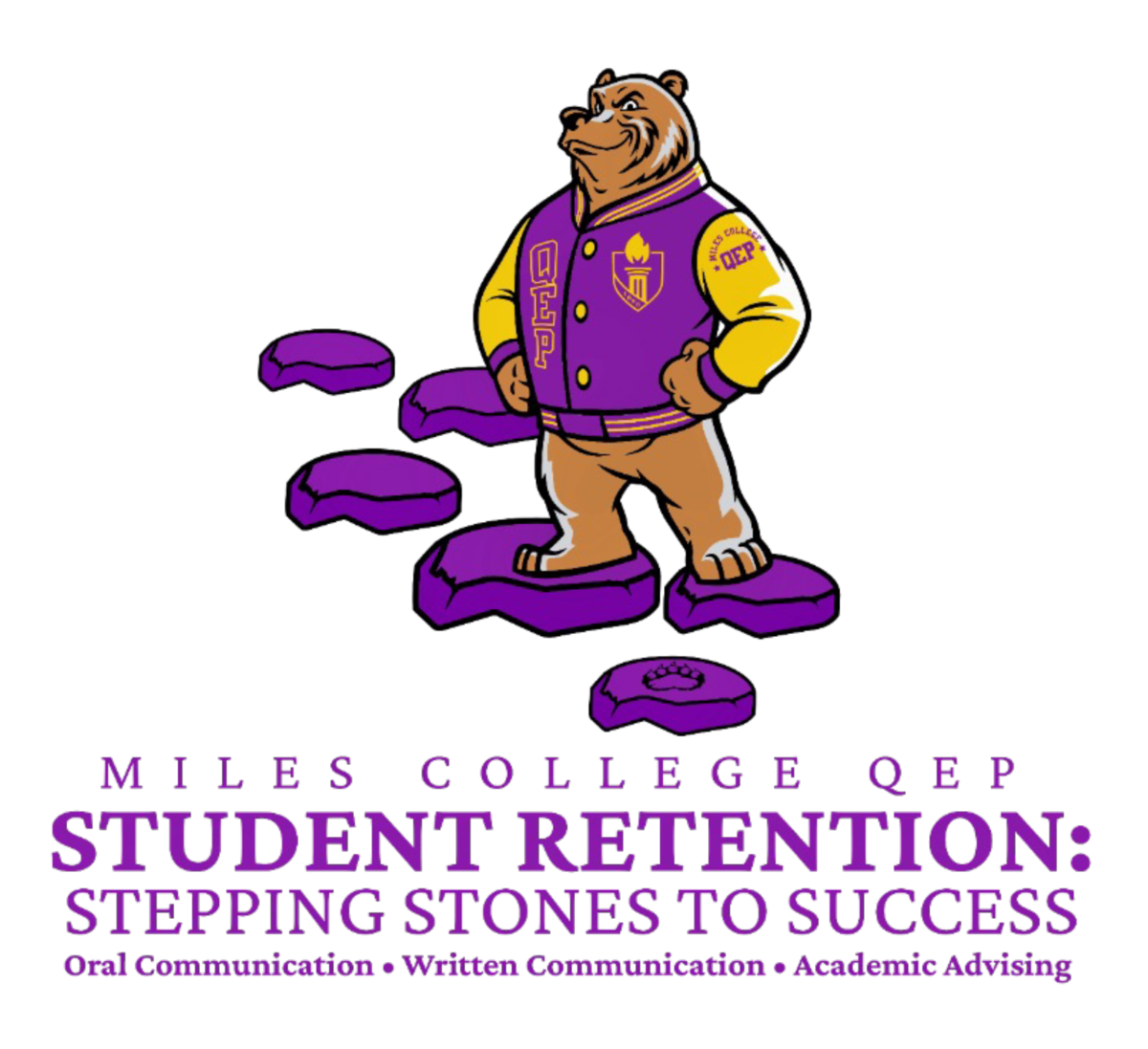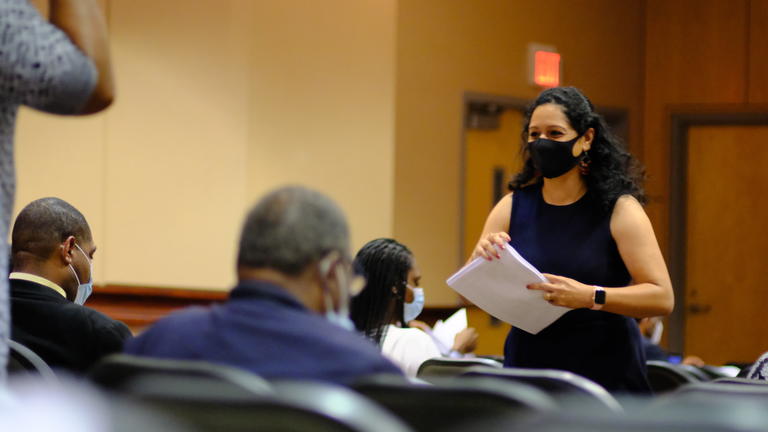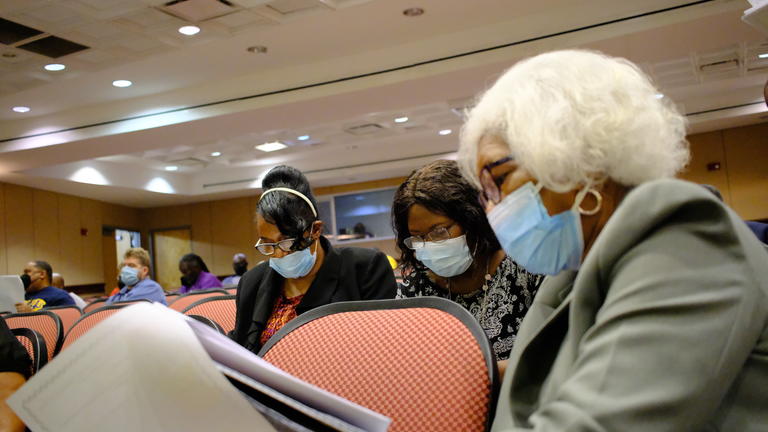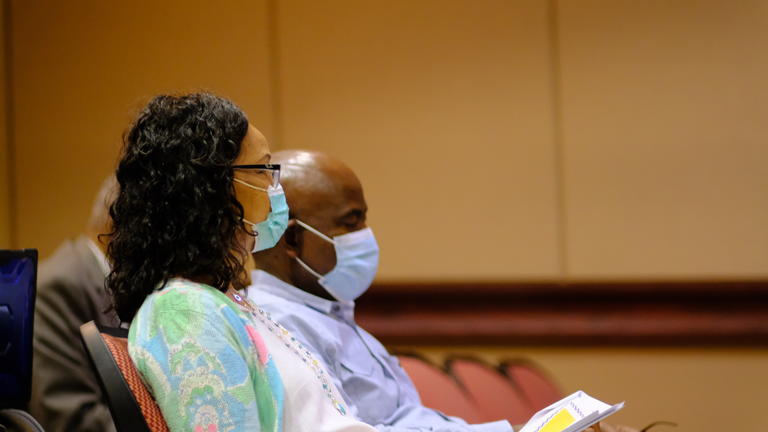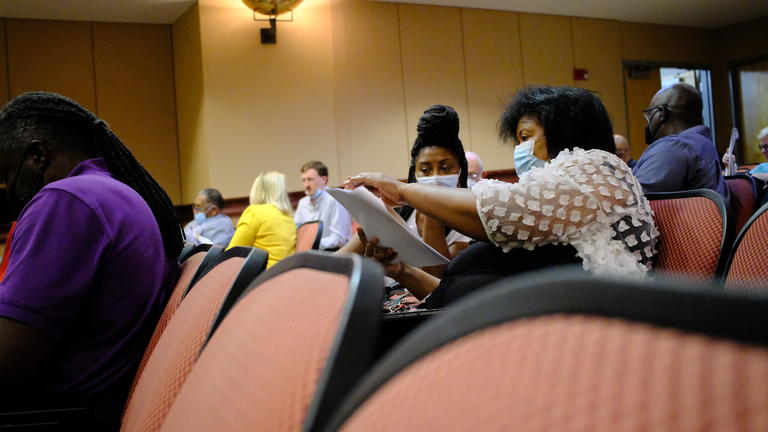QEP Faculty and Staff Professional Development August 3, 2022
QEP Faculty and Staff Professional Development August 3, 2022
QEP Standard 7.2
What is a Quality Enhancement Plan?
The Quality Enhancement Plan (QEP) is a long-term plan that focuses on improving (or enhancing) student learning, performance, and student success. It is an integral component of the reaffirmation of the accreditation process. The QEP topic is derived from an institution’s ongoing comprehensive planning and evaluation processes. It reflects and affirms a commitment to enhancing overall institutional quality and effectiveness by focusing on an issue the institution considers important to improving student learning outcomes and/or student success.
Miles College’s accreditors require a QEP. SACSCOC is the accreditation council for degree-granting institutions such as Miles College. SACSCOC is committed to improving education by making sure each institution meets high academic standards. Thus, they require institutions to evaluate each component that impacts student learning
and success and identify areas that need improving.
Why do we need a QEP?
The Southern Association of Colleges and Schools Commission on Colleges (SACSCOC) is the
body for the accreditation of degree-granting higher education institutions in the Southern states.
As part of the accreditation process, the Quality Enhancement Plan (QEP) is a document
developed by the institution that (1) includes a process identifying key issues emerging from
institutional assessment, (2) focuses on learning outcomes and/or the environment supporting
student learning and accomplishing the mission of the institution, (3) demonstrates institutional
capability for the initiation, implementation, and completion of the QEP, (4) includes broad-
based involvement of institutional constituencies in the development and proposed
implementation of the QEP, and (5) identifies goals and a plan to assess their achievement.
Executive Summary
Miles College has identified student retention as the broad-based topic for the Quality Enhancement Plan (QEP). Miles College’s QEP topic is titled “Student Retention: Stepping Stones to Success.” or “Foundation to Focus”. The QEP focuses on students’ communication skills and academic advising by embedding stepping stones in the first four semesters that will lead to the improved retention of the first-time/first-year freshman cohort. At the onset of preparation for the selection of a new QEP topic for the institution, a Quality Enhancement Plan Committee which comprises of representatives from faculty, students, alumni, staff, and administrators was formed in October 2020. Several possible topics for improving student learning and success at Miles College emerged through ongoing conversations based on the analysis of institutional data provided by The Office of Institutional Effectiveness and Research (OIRE).
With further review and deep dive into the results of the surveys by the QEP Committee, a student-focused survey was administered to students to understand their focal needs that would assist with retention. As a result, the broad-based student retention evolved into a topic that focuses on the retention of cohort starting from freshman year through the sophomore year using “stepping stones to success.” These stepping stones would enable students to advance toward their goal of completion on time. The selection of this topic is in line with the institution mission where it states, “cultivates students to seek knowledge that leads to intellectual and civic empowerment.”
From the survey results administered to students only, the committee also crafted three outcomes, which will assist in providing students with the necessary guidance, skills, academic resources, and support services needed to accomplish their goals and achieve success. These outcomes will also help students in making a successful transition from general education courses (Foundation) to the major courses (Focus).
The outcomes are:
1) Student learning outcome: (Written Communication Skills) Students will demonstrate improved knowledge of communication abilities by developing effective writing processes (EN100, EN 101, EN 102,)
2) Student learning outcome: (Oral Communication Skills) Students will demonstrate improved knowledge of communication abilities by developing effective oral communication process in various contexts (REA 100, SPE111)
3) Student success outcome: (Advising) Advisors/Success coaches will assist students to craft a coherent educational plan and help in choosing a major; make sure students take at least 30 credit hours in an academic year; monitors student’s persistence per semester.
Miles College expects to improve retention by implementing and achieving the above student learning and success outcomes associated with the QEP. The intent is to retain 10% more students in the cohort by the end of the 5-year implementation data collection period. Assessment of the outcomes will be evaluated by formative and summative assessments, focusing on the identified group. To assess communication abilities, the college will utilize standardized assessment tests for writing and oral communication abilities. The advising component's assessment will be in alignment with the embedded stepping stones for each of the four semesters that ensure student persistence.
Miles College is committed to continuous improvement of student learning and student success and has earmarked required human, financial, and physical resources to ensure the success of QEP. The QEP goals align with the College’s mission and strategic goals, which both focus on promoting student success.
How do we select a topic?
The College must review its strategic plan and student data. Faculty discussions about the academic needs and performance of their students is also important. An integral part of this planning committee is to solicit student input about what they believe is missing from their academic experience, or career development preparations. The topic must emerge from the strategic planning process, data, institutional goals and focus on continuous improvement. In addition, the QEP is a course of action that is specific to an institution and its mission; therefore, the Quality Enhancement Plan is a commitment to enhance the overall institutional quality and effectiveness by focusing on improving student learning outcomes/and or student success.
QEP Mission & Conceptual Framework
QEP Mission Statement and QEP Conceptual Framework
Proposed Miles College's QEP Topic
"Student Retention: Stepping Stones to Success"
QEP Work Sessions Calendar
QEP Work Sessions Calendar 2021 2022
QEP Committee Milestones
The QEP Committees are broadly representative of the Miles College community. They consists of
students, faculty, staff, administrators and stakeholders.
- Solicit feedback and facilitate input and discussion on potential QEP topics
- Select and recommend QEP topic to the Reaffirmation Leadership Team
- Upon topic confirmation, solicit pre-proposals ideas from Miles College community
- Select and recommend focused QEP topics from pre-proposal ideas submitted
- Add a QEP Director and possible other members to the QEP Committee
- Research topic-related best practices
- Develop student learning outcomes and objectives
- Identify needed action items
- Determine who is responsible for implementing
- Determine how it will be assessed
- Determine who is responsible for assessing
- Estimate the needed costs
- Determine a timeline for implementation
- Submit nominations for QEP lead evaluator
- Prepare and submit a full Quality Enhancement Plan
QEP Subcommittee Members
QEP Agendas and Meeting Minutes
Quality Enhancement Plan (QEP) Newsletter
Powerpoint Presentations & Faculty Professional Development
QEP - Presentation - September 24
Faculty PD Meeting QEP Presentation Friday, December 10, 2021
QEP 101 Presentation May 26, 2022
QEP Powerpoint Faculty and Staff Professional Development August 3, 2022
QEP Faculty and Staff Professional Development Handout August 3, 2022
QEP Comprehensive PD Plan August December 2023
QEP Comprehensive PD Plan January - May 2024
QEP Faculty and Staff Comprehensive Professional Development Plan
QEP Powerpoint Student Life, Engagement and Chapel Presentation
Instructional Resources
What are VALUE Rubrics?
In 2007, the Association of American College and Universities (AAC&U) launched Valid Assessment of Learning in Undergraduate Education (VALUE) rubrics in sixteen specific areas of learning. Having been tested for validity and reliability, they can be readily adapted to accommodate the language used to frame learning goals for individual programs. The VALUE rubrics have been embraced by all the regional accrediting bodies as an acceptable approach for institutions to use in assessing student learning. The rubrics represent an alternative to standardized testing, providing more robust and nuanced information on areas of strength and weakness in student learning and across a wider range of outcomes.
Why AAC&U VALUE Rubrics?
Internal measures such as the AAC&U rubrics would be more useful to colleges and programs than the national standardized tests like the Collegiate Learning Assessment (CLA) or the Collegiate Assessment of Academic Proficiency (CAAP) as the rubrics assess learning and application within the context of the major. The written communication, oral communication, and critical thinking rubrics represent areas on which the Kansas Board of Regents is currently requesting data for levels of student achievement. National accountability expectations have also provided the option of reporting student achievement scores using the AAC&U rubrics if a reliable plan of implementation is confirmed.
Oral Communication VALUE Rubric
Written Communication VALUE Rubric
Grammarly Website
American Legion: Oratorical Contest
QEP Resources
-
Southern Association of Colleges and Schools Commission on Colleges (SACSCOC) https://sacscoc.org/
-
Reviewing the Quality Enhancement Plan (QEP) – An Evaluative Framework https://sacscoc.org/app/uploads/2019/08/Quality-Enhancement-Plan-Framework.pdf
-
SACSCOC – The Quality Enhancement Plan Policy Statement https://sacscoc.org/app/uploads/2019/08/2018-POA-Resource-Manual.pdf
-
Quality Enhancement Plans: Lists and Summaries Since 2007 https://sacscoc.org/quality-enhancement-plans/
-
Resource Manual for The Principles of Accreditation: Foundations for Quality Enhancement https://sacscoc.org/app/uploads/2019/08/2018-POA-Resource-Manual.pdf
-
Index of SACSCOC Documents https://sacscoc.org/app/uploads/2020/10/Index-of-SACSCOC-Documents.pdf
Please chat with us!
Email: qep@miles.edu
